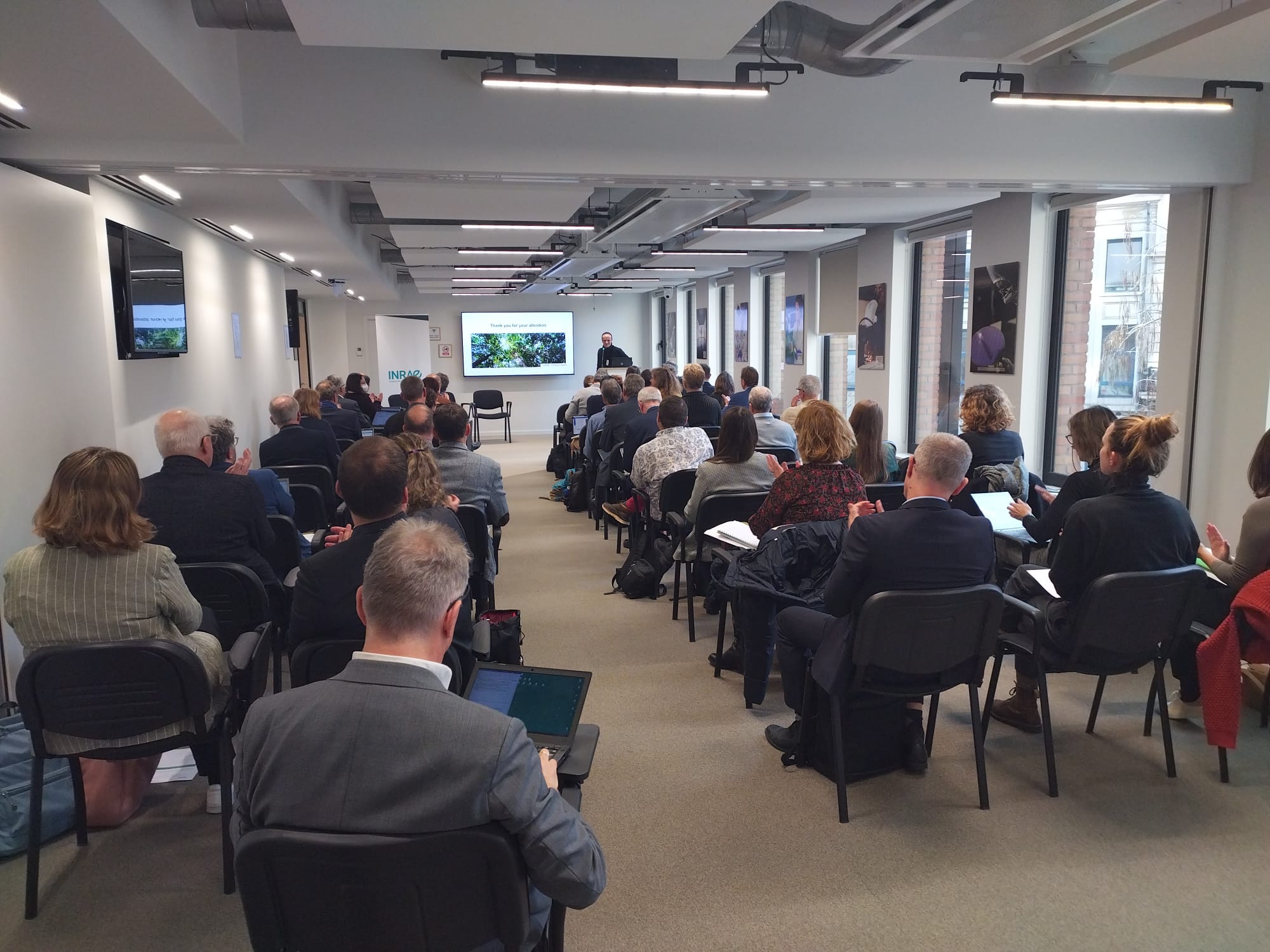Biodiversity Reading time 3 min
How can research on temperate and tropical forest ecosystems meet the objectives of European environmental policies?
Published on 18 December 2023

A forum for discussions between research, policymakers and stakeholders
The common thread running through the discussions was that strengthening a holistic and future-oriented EU forestry policy starts by providing a forum for discussions between the various stakeholders. The fruitful dialogue established during this event, between scientists, policymakers and stakeholders, resulted in some key messages for the future of forests:
- To support policymaking, we need real time integration of knowledge, in order to be able to tackle the urgency.
- Complexity must not be underestimated but should not stop actions.
- We need a portfolio of options, representing the best combination of solutions for the various interests and environmental, social and economic specificities (no “one-size fits all” solution).
- The knowledge and tools developed by researchers should be combined with the expertise of stakeholders and policymakers to co-develop strategic foresights on the future of forests which will support policy decisions.

The panels combined scientific presentations – role of tree microbiota for forest functioning, multiple risks approach, new opportunities offered by remote sensing for biomass monitoring and quality support of research infrastructures – with the presentations of the most recent legislative initiatives of the European Commission related to these topics: the proposals for a Nature Restoration Law and for a monitoring framework for EU forests. A forum was opened for the forest stakeholders to give their views on how to build a holistic vision of forests, after taking stock of the progress achieved by the EU Forest Strategy of the European Commission.
French research organisations (INRAE, CIRAD, IRD, CNRS, universities, GIP ECOFOR) promote a holistic approach to forests and provide their expertise to the EU to help design public policies adapted to a changing environment. With the support of its partners and building on its long-term experience, including in EU funding projects, INRAE remains fully committed to initiatives developed at national, European and international level.
The Maison Irène and Frédéric Joliot-Curie in Brussels showcases the excellence of French higher education, research and innovation in Europe. Home to France’s leading research players, “la Maison” is dedicated to promoting cooperation between research institutions and key European and international stakeholders.
Novel remote sensing technologies and Artificial Intelligence to monitor the state and functioning of forests
While the European Parliament and Council are working on a regulation on a monitoring framework for resilient European forests, recent scientific advances, with major contributions from European teams, have shown that, by combining Artificial Intelligence (AI), satellite imagery, LiDAR observations and ground inventory data, environmental integrity of forests can be tracked down to tree level.
Integrated observation systems combining long-term field observations, near-range sensing and satellite remote sensing provide key insights into the state of forests and changes occurring in them. These systems are scalable and provide a key foundation for regional to global forest governance.
Novel remote sensing technologies and AI can be used to collect high quality data and provide robust calibration and validation of indicators and models, to produce better maps of tropical and temperate forest status and functioning and to provide accurate and near-real-time monitoring of forests. In this respect, they will contribute at building a comprehensive, high-quality forest monitoring system that covers all forests and other wooded land in the EU and helping to better counter all the pressures and hazards forests are facing.
Scientific collaborations between French research organisations have already led to a focal project in the FORESTT programme on “Smart forest ecological monitoring systems” gathering CNRS, CIRAD, INRAE, IGN and IRD. On an international level, the One Forest Vision Initiative aims to map at the tree level and to measure the carbon balance of the most vital carbon and biodiversity reserves in the African forest basins within the next five years.
What is the PEPR FORESTT ? Christophe Plomion and Arnaud Sergent (INRAE), co-director of the programme tell us more

The PEPR FORESTT is an ambitious interdisciplinary research programme on FOREST social-ecological-systems Transition, in temperate and tropical areas. This program is part of the France 2030 investment plan. With a budget of €40m over 6 years (2024-2029), it will mobilise the entire French scientific community around four challenges dedicated to increasing knowledge and addressing several targets.
- The societal challenges of the social ecological transition of forests
- The development of a circular and agile wood-based bioeconomy
- The adaptation and resilience of forest ecosystems for mitigating the negative effects of global climate change
- The use of smart monitoring systems to foster scientific discoveries, and to guide forest management and political decisions
This program will fund research projects, structure the scientific community and consolidate research infrastructures, support action research and the Research-Development-Innovation continuum, and strengthen links between science and society. The ambition is to structure and drive interdisciplinary, participatory and transformative forestry science, geared towards action and the implementation of innovative, long-term solutions that promote the sustainability and resilience of forest socio-ecosystems.

Launched at the One Forest Summit, the initiative will provide information on key ecosystems using the most recent research on remote sensing and drawing on the fast-developing field of artificial intelligence.
